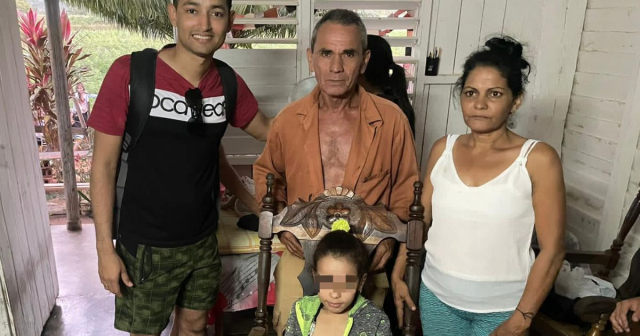A video published on social networks by the Cuban Observatory of Human Rights showedseveral minors selling different products in a street market in Havana.
This is a recurring situation not only in the capital but also in the rest of the country, where minors are forced by circumstances and prevailing poverty to dedicate part of their time to helping their families to support themselves at home. .
In the published images you can see at least three or four minors, one of them proposing the sale of a bag of potatoes for 600 pesos, according to what can be heard. In the video, another teenager is seen with a bag of pan flutes.
It is not the first time in recent months that the harsh reality of Cuban minors working as street vendors to help their families has been transcended.
In September of last year the image ofa child selling tortillas on the street in Santa Amalia, in the Arroyo Naranjo municipality, sparked a wide debate on social networks aboutthe current situation of minors in Cuba, unable to escape the prevailing crisis.
In the comments section of the publication, several Internet users pointed out that it is not that it is bad that there is a willingness to help their parents, but they agreed that a child at that age should be playing and not working, in addition toThis image deviates from the protection of minors that the Díaz-Canel government proclaims.
In the extensive debate generated by the images - which put the finger on one of the groups that suffers the most from the economic crisis prevailing on the island - some Internet users indicated that scenes like these are very common in other Latin American countries, an argument that was refuted with the affirmation that at least those governments admit the phenomenon, something that does not happen in Cuba.
In August of last year, the case of a boy who sold packets of Coral soda for 30 pesos on a corner of busy Monte Street, in Havana.
Previously, in May, the case of another boy who sold quail eggs to help his grandmother, in that case in the Guisa municipality, in the Granma province.
The Cuban Observatory of Human Rights (OCDH) also denounced thatAn 11-year-old boy, resident in Santiago de Cuba, collected raw materials on the street and then sell it to a state company.
In all cases, the images generate mixed reactions: where some appreciate a trait that will strengthen the character of minors and an activity that forges them in the need to work to get ahead, others insist that children should only play and study.
They also argue that such reality is only evidence of a failed government that is not capable of guaranteeing the well-being of its minors.
In April of last yearDatoWorld, a renowned international electoral observatory, indicated thatCuba is the poorest country in Latin America, as it has a 72% poverty rate, an alarming figure that places it at the forefront of the countries in the region.
What do you think?
COMMENTFiled in:
